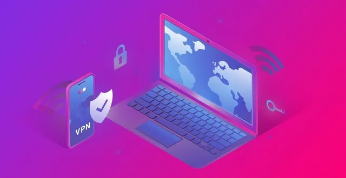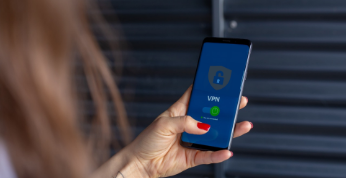What is VPN?
08 August 2019
What is a VPN and what does it do?
If you’re not sure what a VPN is, you’ve come to the right place. a VPN (Virtual Private Network) is best described as a tool that hides your IP address and encrypts your online traffic.” Yes, but …… What’s in it for me?” - You might ask. Good question, Internet users. You’ll find out everything you need to know about VPN services: from the technical details to how they are used on a daily basis.
What’s browsing like without a VPN?
To understand what a VPN is all about, it’s important to understand how the Internet works without a VPN. Let’s say you want to view that scandalous tweet everyone is talking about. First, you connect to the Internet through your ISP (short for Internet Service Provider). Your online traffic is now routed through your ISP’s servers. This means that every click is tracked and stored in your ISP’s database.
In addition, each network has a unique IP address assigned by your ISP. Since you are identified by your IP, this makes it easier for third parties to track your actions. Because of this, you may not be able to access some content from overseas. Besides, no one likes the idea of someone spying on them, right?
How do you define what happens when you open a VPN connection?
Some important things to know about a VPN - once you turn it on, your online data doesn’t go directly to the site. Instead, it passes through an encrypted tunnel until it reaches the site. To understand what encryption is, imagine something tightly wound, like your headset. You know, back in the days before wireless headsets existed. Now, what happens when you connect to a VPN? Something similar. Your data is no longer a plain text. It has become unreadable to anyone who tries to intercept it.
At the same time, your real IP address becomes invisible because you replaced it with the IP of a VPN. What does this mean for you? As long as you have the VPN open, no one can see who is behind the VPN shield. All they can track is that someone is using the VPN. most importantly, your ISP, government or other nosy third parties can no longer see the websites you visit or the files you download.
In addition, various websites or streaming platforms have geo-restrictions. Since your IP shows your location, the service can detect that you are not in the “right” country and deny access. To bypass these restrictions, use a VPN and connect to a server in a different country. the VPN connection will change your IP so it looks like you are connecting from somewhere else.
But that’s not all. You already know what a VPN is, and you already understand what it means - it encrypts the data you send and receive. As a result, it’s no longer vulnerable to all kinds of cyber attacks. One of the greater risks is data theft while browsing on public networks. With a protected connection, you can rest easy knowing that no criminals can get into your device to steal your data.


